On the morning of November 17, continuing the 10th Session, the National Assembly discussed in groups the draft Resolution of the National Assembly on specific policy mechanisms to implement Resolution No. 71 of the Politburo on breakthroughs in education and training development.
Specify the monitoring mechanism to ensure transparency in recruiting educational human resources.
Delegate Tran Thi Quynh ( Ninh Binh Delegation) expressed agreement on the necessity of developing a Resolution to create a legal framework, mechanisms, and outstanding policies to help remove bottlenecks and create momentum for breakthrough development in education and training.
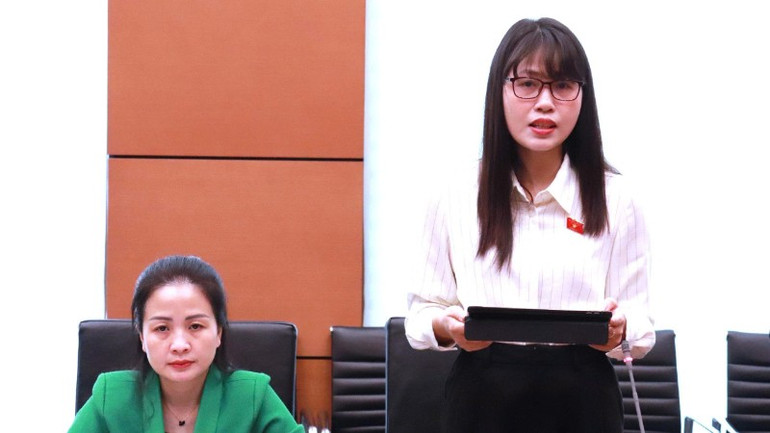
Commenting on the content of human resource development in the education sector (Article 2), delegate Tran Thi Quynh agreed with many mechanisms and policies stipulated in this article, especially the regulations on recruitment, reception, mobilization, transfer, and secondment of human resources in the education sector at Point a, Clause 1. According to the delegate, this is a breakthrough mechanism in decentralization and delegation of power, suitable for practice to create a mechanism to solve the problem of local teacher surplus and shortage in the locality.
However, to regulate the arrangement, assignment, and change of job positions for these human resources, ensuring feasibility in practice, according to delegates, there should be specific regulations on monitoring, inspection, and periodic reporting mechanisms to ensure transparency and fairness in recruitment, mobilization, and transfer of educational personnel.
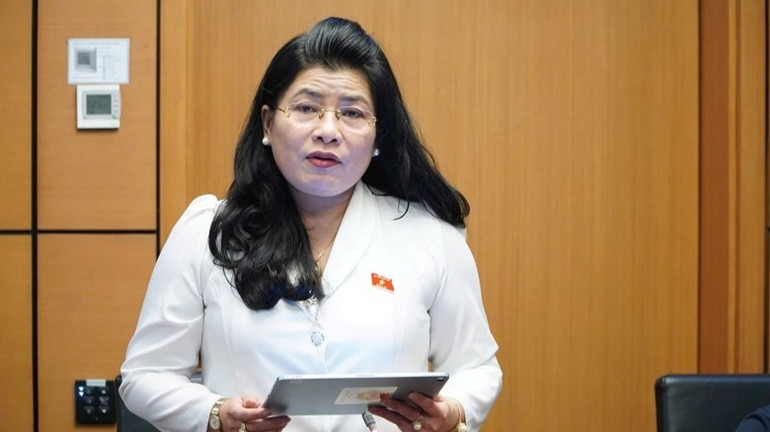
Also concerned about human resource development policies, delegate Dang Thi My Huong (Khanh Hoa Delegation) said that the draft Resolution gives power to the Director of the Department of Education and Training and the Chairman of the People's Committee at the commune level in the recruitment and transfer process, but does not clearly stipulate the mechanism for handling individuals if there is negativity, harassment, abuse of power, as well as the accountability of the head.
On that basis, delegate My Huong and a number of delegates proposed to strictly define the scope of mobilization (involving two or more commune-level administrative units in the same province); supplement the monitoring and transparency mechanism by building a human resources database, publicizing quotas, recruitment lists, mobilization criteria and designing an independent inspection mechanism.
Research on roadmap for developing electronic textbooks
One of the new points in the draft Resolution that has received attention is the policy of free textbooks for students, to be completed by 2030 and for localities with conditions, to be implemented earlier from the 2026-2027 school year.
Delegate Ma Thi Thuy (Tuyen Quang delegation) assessed that this is a great policy, with profound meaning for social welfare and equity in education. The policy of free textbooks is a step forward demonstrating the humanistic and socialist nature of our country's education.
However, delegates expressed concerns about the fairness and enforceability of this regulation.
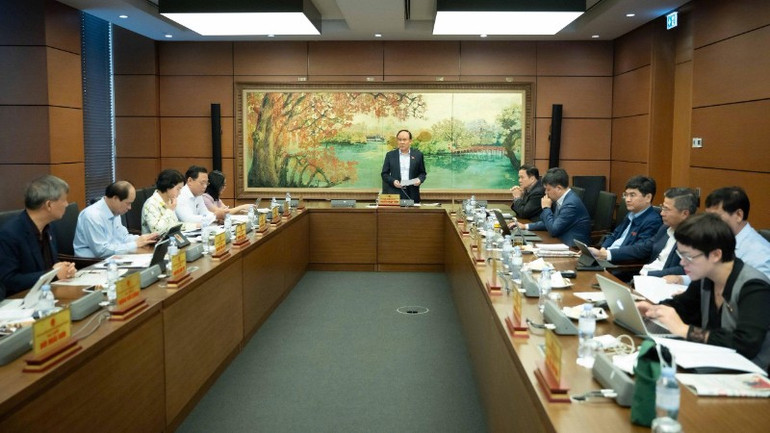
According to the draft, “affordable” localities will be able to implement free textbooks 4 years earlier than the remaining localities. Meanwhile, in reality, “affordable” provinces are mainly large cities and economic centers – where people’s living standards are relatively high; while disadvantaged localities – mountainous areas, islands, and ethnic minority areas – will have to wait until 2030 to benefit from this policy.
That, according to the delegate, invisibly creates a social paradox: students who need support the most are the last to receive it, so students' access to education between regions will no longer be equal in terms of time.
Therefore, the delegates recommended that the drafting agency consider adjusting this regulation in the direction of: Maintaining the goal of free textbooks nationwide by 2030, but prioritizing early implementation in particularly difficult areas, mountainous areas, islands, and ethnic minority areas - where people really need the most support. At the same time, adding specific criteria to determine "localities with conditions" based on budget balancing capacity, socialization ability, and average income per capita, so that implementation is transparent and avoids arbitrariness.
Allow the mobilization of social resources, scholarship funds, businesses, and socio-political organizations to participate in providing free textbooks, instead of relying solely on the State budget; pilot the model of "shared textbook libraries" in general schools from 2026, especially in rural and mountainous areas, so that students can borrow and reuse textbooks for free while waiting for synchronous implementation.
“The free textbook policy, if designed reasonably, fairly and humanely, will be a concrete step to vividly realize the spirit of “education for everyone, leaving no one behind,” the delegate stated.
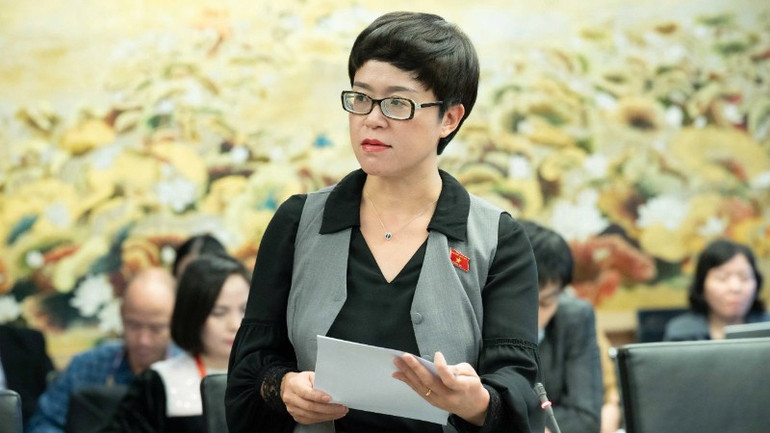
To ensure resources while the budget is still limited, delegate Duong Minh Anh (Hanoi City Delegation) suggested that the Government study the subjects that are exempted from paying for textbooks, and the form of free textbooks for children through borrowing them from school libraries instead of providing children with a set of textbooks for free each year and then throwing them away, which would be very wasteful.
At the same time, the delegate proposed that the Government assign the Ministry of Education and Training to research the compilation of digital textbooks like many countries with advanced education in the world such as Finland, Japan, the US, Estonia,... and the implementation roadmap will be in 2030.
"To truly make a breakthrough in educational development, especially general education, I suggest that the Government needs to study a roadmap for developing electronic textbooks to apply to teaching high school students in the near future," said the delegate.
Source: https://nhandan.vn/tang-cuong-giam-sat-bao-dam-minh-bach-trong-tuyen-dung-nhan-luc-giao-duc-post923674.html




![[Photo] General Secretary To Lam and National Assembly Chairman Tran Thanh Man attend the 80th Anniversary of the Traditional Day of the Vietnamese Inspection Sector](https://vphoto.vietnam.vn/thumb/1200x675/vietnam/resource/IMAGE/2025/11/17/1763356362984_a2-bnd-7940-3561-jpg.webp)








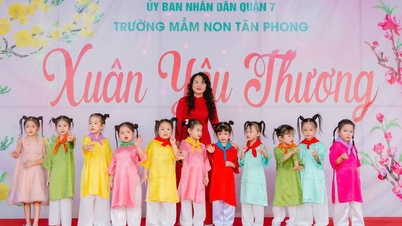

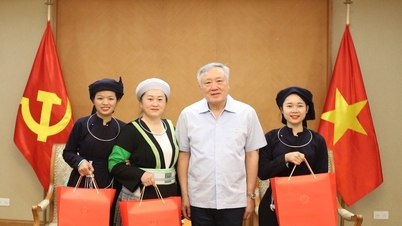
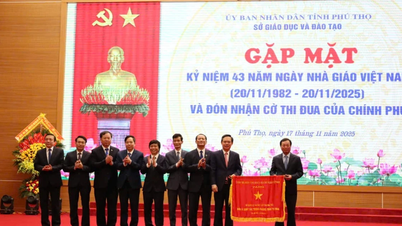






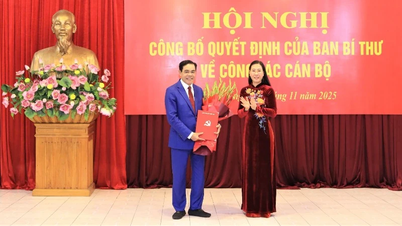

























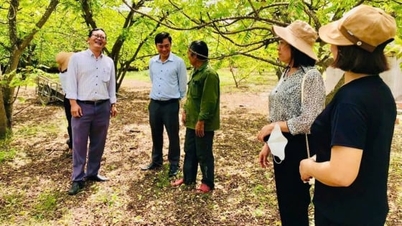

























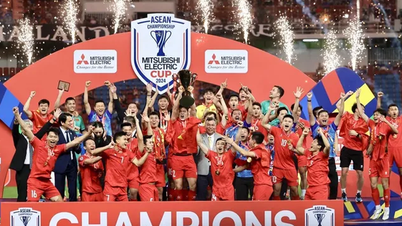
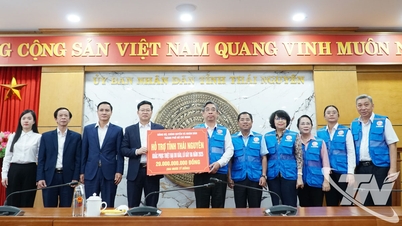



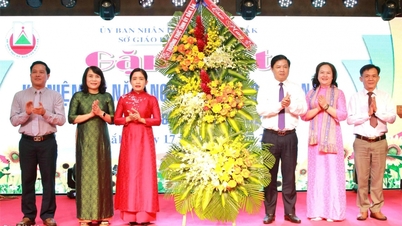

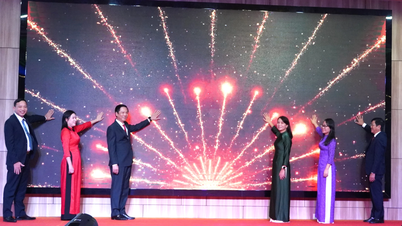
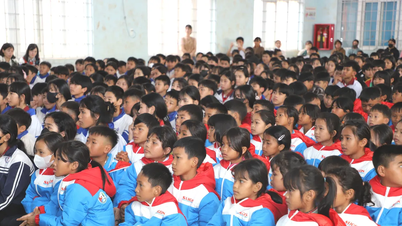

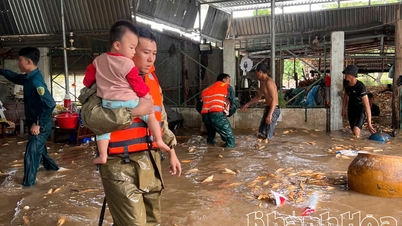














Comment (0)